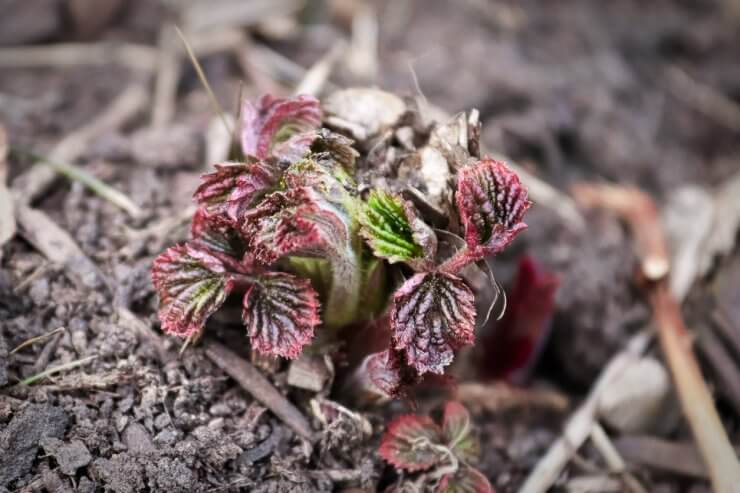
New raspberry canes in soil
Healthy raspberry plants start with great soil in which to grow them. Raspberries thrive in well-draining sandy or loamy soil that has been enriched with organic matter, such as well-aged compost or manure, a few weeks before planting.
And it’s alright if you don’t make your own compost—you can buy bulk compost from most gardening supply stores. Try to find “certified compost” with the U.S. Composting Council’s Seal of Testing Assurance (STA)—their rigorous testing process and standards will ensure you get quality compost.
If you have acidic soil, you’ll want to add lime, as raspberries grow best in soil with a pH of about 6. With your compost and amendments on top of your soil, use a spade fork to turn the soil over and mix everything together.
Remember, soil health is one of the most important things to ensuring that your raspberry plants thrive and produce a high quantity of quality fruit.
When it comes to companion planting raspberries, here are some plants that raspberries like to share space with. Be sure to give raspberries plenty of space of their own, but you can plant these nearby, and they will help deter pests:
- Alliums (chives, garlic, leeks, onions)
- Chervil
- Turnips
- Yarrow
And here is a list of plants to keep away from your raspberries, as they can spread diseases:
- Eggplant
- Potatoes
- Tomatoes
- Blackberries
- Boysenberries
- Gooseberries
In fact, experienced raspberry gardeners recommend you avoid planting raspberries in a part of the garden where you have grown these plants in the past.
What type of soil do you use to grow your raspberries? Do you use compost or manure? What are your best tips for creating optimal soil for your raspberries? Please share your techniques with us.


 Previous
Previous

